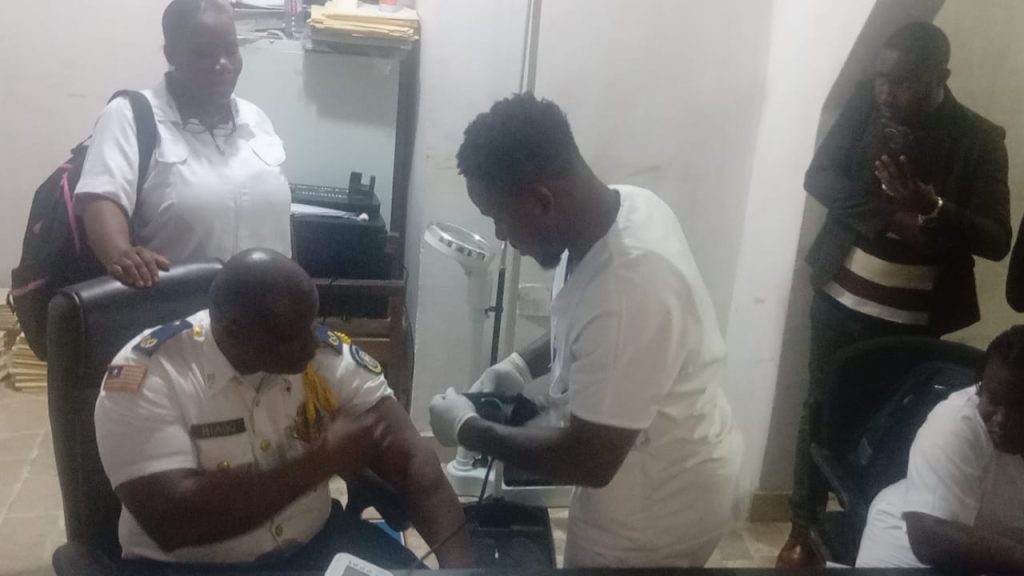The newly appointed Officer in Charge (OIC) of Liberia’s Drug Enforcement Agency (LDEA), Deputy Commissioner of Police Fitzgerald Biago, has initiated a comprehensive overhaul of the agency, beginning with a compulsory nationwide drug test for all LDEA officers. This decisive action, announced at the agency’s headquarters in Monrovia, signifies a commitment to restoring public trust and operational effectiveness by addressing internal accountability and integrity within the institution responsible for combating drug trafficking and abuse in Liberia. DCP Biago emphasized that the fight against illicit drugs must begin within the LDEA itself, setting an example of ethical conduct before confronting external threats. By undergoing the drug test himself, the OIC demonstrated his commitment to leading by example and underscored the seriousness of this initiative.
DCP Biago’s address served as a stark warning to drug traffickers and distributors across Liberia. He declared an intensified campaign against their networks, promising relentless pursuit, vigorous prosecution, and an end to impunity. The OIC pledged to leverage the combined forces of the LDEA, the Liberia National Police, and other members of the Joint Security to dismantle drug trafficking operations, signaling a new era of proactive law enforcement. This assertive stance underscores the government’s determination to address the growing national security threat posed by the proliferation of illicit drugs.
Recognizing the critical role of public engagement in combating drug-related activities, DCP Biago announced the establishment of an anti-drug hotline. This initiative seeks to empower citizens to provide vital intelligence and actively participate in the fight against narcotics. He appealed for widespread public cooperation and emphasized the importance of media partnerships in amplifying the message and fostering community involvement. This collaborative approach recognizes that effective anti-drug strategies require the collective efforts of law enforcement, the public, and the media.
The OIC’s address highlighted the gravity of the drug crisis in Liberia, emphasizing the devastating impact of drug trafficking and abuse on youth, communities, and national security. He framed the issue as a collective national challenge demanding a unified response from all Liberians. DCP Biago’s words served not only as a call to action within the LDEA but also as a plea for national unity and shared responsibility in confronting this critical threat to the nation’s well-being.
DCP Biago expressed gratitude to President Joseph N. Boakai and the Minister of Justice for the trust placed in him and the interim leadership team, acknowledging the significant challenges that lie ahead. He conveyed confidence in their ability to overcome these obstacles and restore the LDEA’s integrity and effectiveness through determination, discipline, and collective effort. This statement reinforces the government’s commitment to supporting the agency’s revitalization and acknowledges the importance of strong leadership in driving the necessary reforms.
The address concluded with a final warning to those involved in illicit drug activities, emphasizing the urgency of the situation and the LDEA’s resolve to employ all lawful means to restore order and safeguard the future of Liberia. The 90-day timeframe for submitting a comprehensive report to the Ministry of Justice adds a layer of accountability to the OIC’s mandate, underscoring the importance of demonstrable progress and tangible results in this critical endeavor. The appointment itself being conditional on the report’s findings highlights the government’s seriousness in addressing the drug problem and its commitment to holding the LDEA leadership accountable for achieving meaningful change.














